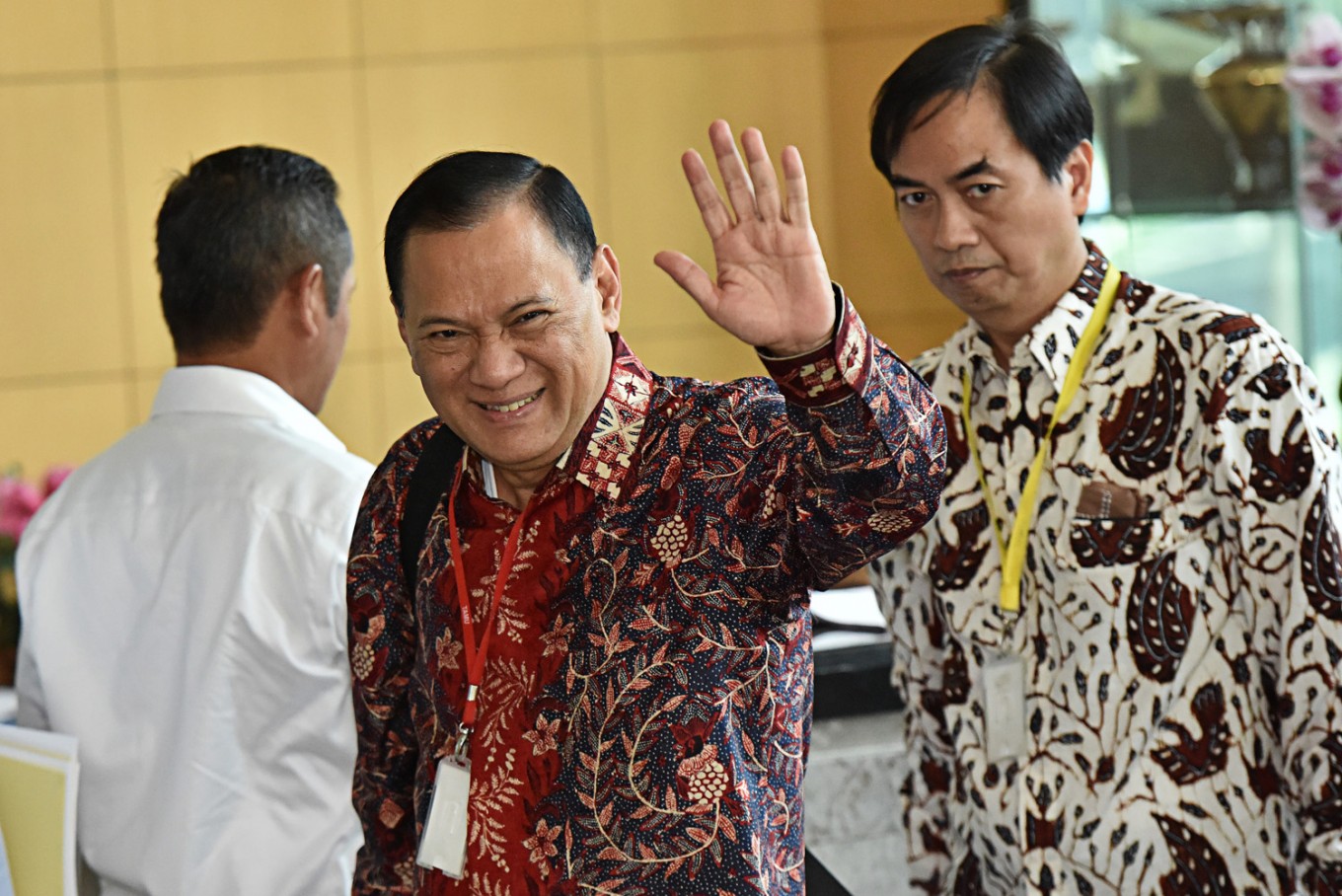Popular Reads
Top Results
Can't find what you're looking for?
View all search resultsPopular Reads
Top Results
Can't find what you're looking for?
View all search resultsIndonesian policymakers prepare for US transition
Government prepared for higher global interest rates, inflation caused by Federal Reserve moves Efforts urged to diversify export destinations.
Change text size
Gift Premium Articles
to Anyone
I
n anticipation of a changing US economic direction with the inauguration of president-elect Donald Trump, Indonesian policymakers have vowed they are ready, with sufficient measures at hand to tackle potential problems.
Bank Indonesia (BI) says it will work closely with the government to ensure domestic economic stability as the recent increase in the Federal Reserve’s funds rate and several hikes planned this year will likely translate into higher global interest rates and inflation.
Higher global rates would force companies to adjust to rising US dollar borrowing costs against a backdrop of fiscal and trade uncertainty, said BI Governor Agus Martowardojo.
“We are anticipating the US economy becoming more protectionist. As for Indonesia, it may need to seek new export destinations, because its exports to the US have reached US$15 billion,” he said on Friday.
Agus added that BI and the government would take concerted measures to manage inflation, such as improving the distribution of food commodities to curb volatile prices.
The central bank aims for the inflation rate to stay in check between 3 percent and 5 percent, while the government expects it to stay at around 4 percent.
The central bank will maintain its presence in the foreign exchange market and in the secondary market for government bonds, despite the appreciation of the rupiah by 2.3 percent throughout last year.
Capital inflows had reached Rp 18 trillion since the start of the year, far higher than the Rp 3 trillion seen in the same period last year, due to high demand for Indonesian government bonds, BI explained.
Finance Minister Sri Mulyani Indrawati acknowledged that the exchange rate and inflation were seen as the country’s most volatile spots if global markets turn jittery, which could cause inflationary pressure in the domestic economy, as subsidies for fuel and certain electricity tariffs were cut. The ministry’s financing and risk management directorate general had been ordered to remain cautious of surging yields due to potential outflows, particularly in the three-month treasury bill (SPN), the rate of which is assumed at 5.3 percent in this year’s budget.
Given the uncertainty on revenues, the government will also try to ensure its expenditure is well absorbed, particularly in the regions, as they received more funds, according to Sri.
The government seems to be less worried about the protectionist stance the Trump administration may take on trade, despite the fact that the US is a major Indonesian export destination.
Trade Minister Enggartiasto “Enggar” Lukita said he believed the two countries would still trade as usual, because the commodities and goods exchanged between them were complementary.
“I believe there’s no such thing as complete protectionism. USIndonesian trade will keep going on; we just need to increase our product quality to ensure our competitiveness,” he said recently.
Indonesia exported $16.27 billion worth of goods to the world’s biggest economy in 2015, while it imported products worth $7.61 billion, resulting in a trade surplus of $8.65 billion.
The ministry will continue its push to diversify exports to non-traditional destinations, including African and South Asian countries, such as Pakistan and Sri Lanka.
Major Indonesian export goods to the US include textile, footwear and fisheries products. Textile makers under the Indonesian Textile Association have expressed their confidence that US protectionism would not affect Indonesian textile and garment products. API chairman Ade Sudrajat said what concerned the businesspeople was the shrinking competitiveness of Indonesian products due to internal factors, including high costs of labor and logistics.
However, fisheries producers expressed worry over non-tariff barriers potentially imposed by the US.
The chairman of the fisheries division of the Indonesian Employers Association (Apindo), Thomas Darmawan, said allegations over unfair trade practices would be a major issue exporters would watch out for.
Indonesia is the second-biggest exporter of fisheries products to the US, according to data from the Center of Reform on Economics (CORE)Indonesia.
Federal Reserve chief Janet Yellen earlier this week said she expected to see three interest rate hikes until 2019, as the US was rebounding from the worst financial crisis since the Great Recession.
Trump has repeatedly said that he wants to see factories produce goods locally to bring back American jobs and therefore, will impose higher tariffs on imported goods, which many partners see as a threat of rising protectionism










